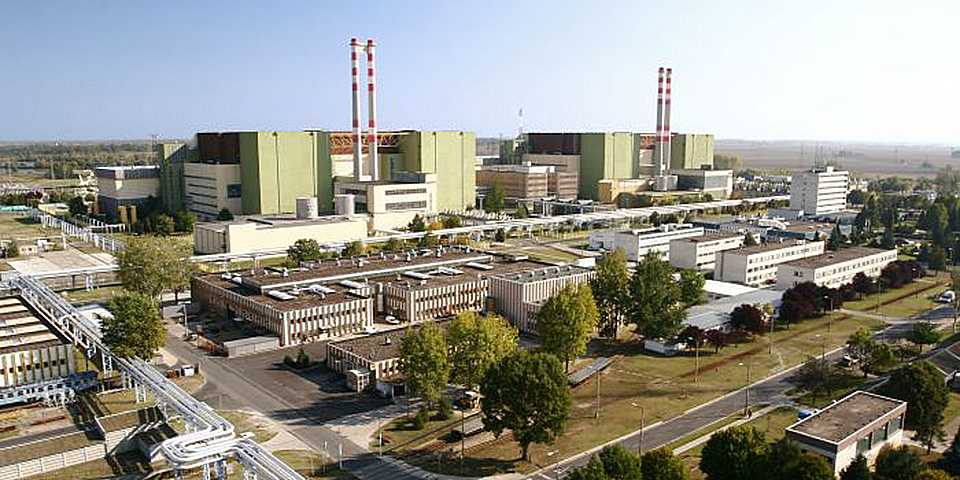
Paks welcomes suppliers
back to contentsCore equipment of the reactor island will be produced in Russia in line with Russian technologies while other equipment and construction services will be tendered out to third-party suppliers. Hungarian companies are willing to take part in equipment procurement tenders. “Every Hungarian service provider would dream of being involved in a project of this scale,” argues Zoltán Gál from Obuda, a Hungarian engineering company. “It is beneficial to both parties. We know regulatory requirements inside out and can easily adapt the Russian project to national standards. Nuclear station safety will definitely be a priority, but comfort and aesthetics of industrial architecture will be appreciated in Hungary no less.”
Another Hungarian engineering and consulting company Pöyry has been involved in the project since the construction of Paks-1. “We neither manufacture nor construct or install. We are engineers, and our task is project development and management,” Jozsef Denis from Pöyry explains. The company has taken part in all the projects at Paks, including service life extension and capacity boost projects. According to Denis, Russian contractors will need assistance of Hungarian engineers in obtaining regulatory permits. “I hope that we will play an important role in the project,” he says.
Hungarian companies are not the only to consider the joint project to be beneficial. “Many at this Forum have worked at our projects in Russia, the Czech Republic, Slovakia and Hungary and have good knowledge of our equipment and standards,” says Vladimir Angelov, Director for Nuclear Power at Atomenergomash.
“We have been long-standing partners with Rosatom. We have supplied diesel generators for the construction sites in Novovoronezh and Belarus. Now we are working on the Hanhikivi project. We hope to supply the process control system for Paks-2,” says Neil Parison, Rolls Royce Executive Vice President. “We plan to work in partnership with Hungarian companies. It is a must to take into account customer preferences and regulatory requirements when adapting the project to European standards. This is what Rosatom is doing now in Hungary and in Finland. I see no barriers for the both projects to develop. I hope that all the issues raised by the European Commission will be settled because everyone here at the Forum is eager to get started as soon as possible.”
Czech companies have been among Rosatom’s close business partners recently. One of them, EGP INVEST, was engaged by the Russian team to take part in the MBIR research reactor project. “We designed the turbine island,” Jiří Golub from EGP INVEST comments.
FANS, a cooling equipment producer from the Czech Republic, is involved in a number of joint projects with Rosatom. “Our services are required where there is little water. We proposed the inclusion of dry cooling towers or air-cooled condenser systems in the nuclear station project in Jordan,” FANS representative Jaromír Odstrčil says.
Another Czech company, SIGMA, supplies pumps for Russian nuclear stations under construction. Its Austrian competitor ELIN Motoren GmbH plans to bid for equipment supplies to Kursk-2, Kudankulam and Paks. “We manufacture a variety of pumps and hope to become a supplier of electric motors for the Hungarian station,” Christian Voland from ELIN shares his plans.
DOK-ING, a Croatian supplier of unmanned vehicles, strives to reach out to the nuclear market. The company plans to offer its unmanned solutions for spent nuclear fuel and radioactive waste management. “We have no competitors, but we have not yet succeeded in entering the nuclear market,” a DOK-ING representative Konstantin Darmanyan says.
Rosatom is willing to engage as many foreign vendors as possible in the Paks-2 project and provide for technology transfer. According to preliminary estimates, local providers will account for at least 40% of total project-related services and supplies. “We will be glad to have other suppliers in the project as our cooperation will streamline the process, which is good for us and the customer,” Vladimir Angelov assures.
In general, forum participants were unanimous that Paks brings benefits to both Russia and Europe. According to Rosatom Deputy CEO Kirill Komarov, “Paks will tie the Russian and Hungarian economies for decades, improve the energy balance of this Central European country and create thousands of new jobs.”




